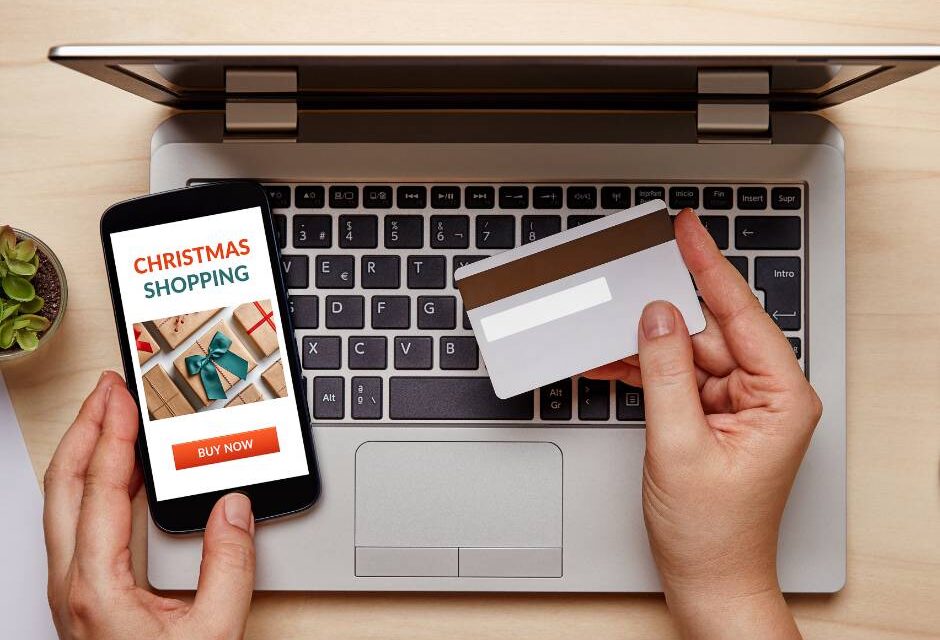As Christmas approaches, and with many of us turning to the internet for Black Friday deals and to hunt for the best bargains, it’s important to remember that the busiest time of year for online shopping is also the busiest time of year for online criminals.
Whether it’s shopping or socialising, playing games or watching a movie, the internet now has a major part to play in most people’s Christmas. This makes it essential that we take precautions to protect ourselves, our families, finances and devices against online harms.
Get Safe Online’s “Safe Online Christmas” campaign highlights how to stay safe online this Christmas – and to avoid potentially buying more than you bargained for. We’ve summed up their top tips below, to help you stay vigilant and safe on the internet this festive season.
- Buying online –
Learn how to spot the difference between genuine and fake websites, secure and insecure payment pages and authentic and counterfeit goods. Before you visit a website, check if it’s likely to be legitimate or fraudulent using Get Safe Online’s Check a website tool. Beware of texts claiming to be from a parcel firm telling you there’s a ‘delivery fee’. If in any doubt, always call the organisation on the number you know to be correct. - Connected devices –
Protect all new or second-hand internet-connected phones, tablets and computers with a reputable security app/software. Add a new PIN or passcode as soon as you power up. Ensure all devices are backed up automatically so you don’t lose your precious documents and photos. Check privacy and location settings for new and existing devices …that’s yours and your family’s.
Always set up new passwords on internet-connected devices like voice assistants, appliances, cameras, kids’ toys and fitness watches, as soon as they’re switched on. Using the factory-set default passwords could result in them being hacked. Always use different passwords for different devices, websites or accounts for the same reason. And remember … voice assistants are designed to hear everything! Find more information about setting up connected devices. - Gaming –
Avoid oversharing, griefing, in-game overspending and pirated games. Keep track of how much time you’re spending online. Keep an eye on your kids’ gaming, check on games’ PEGI age limits and talk to them about who they’re or playing and chatting with. - Out & about –
Don’t use Wi-Fi hotspots in cafés, pubs, hotels, on public transport and other public places for anything confidential as they could be either insecure or fraudulent. - Mobile apps –
Download those new apps only from official sources such as App Store, Google Play or Microsoft Store. Getting them elsewhere could result in fraud or identity theft. - Video calls –
Make sure video calls are safe and secure by using a service that needs a strong password, and don’t share the call invitation or details outside the person or group on the call. - Updates –
Download updates to software, apps and operating systems on all your devices as soon as you get notified. Better still, set them to update automatically. Otherwise, they could get infected by malware, leading to fraud or identity theft. - Protecting your family –
Talk to your children about being safe and responsible online, including what they share, who they’re talking to and the type of content they access, including apps and games. Consider downloading a respected parental control app and using ISP content filters. Make sure your children aren’t running up bills in games and other apps. - Oversharing –
Make sure what you share online is respectful and doesn’t reveal confidential, sensitive or embarrassing information about yourself or others, including family members and friends. If you’re away from home, keep it to yourself, as social media is a burglar’s best friend.
Get Safe Online is the UK’s leading source of information and advice on online safety and security, for the public and small businesses. It is a not-for-profit, public/private sector partnership backed by law enforcement agencies and leading organisations in internet security, banking and retail.
For more information and expert, easy-to-follow, impartial advice on safeguarding yourself, your family, finances, devices and workplace, visit www.getsafeonline.org.




